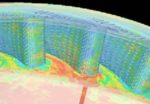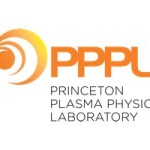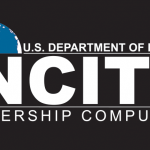GE Research has been awarded access to the world’s #1-ranked supercomputer to discover new ways to optimize the efficiency of jet engines and power generation equipment. Michal Osusky, the project’s leader from GE Research’s Thermosciences group, says access to the supercomputer and support team at OLCF will greatly accelerate learning insights for turbomachinery design improvements that lead to more efficient jet engines and power generation assets, stating, “We’re able to conduct experiments at unprecedented levels of speed, depth and specificity that allow us to perceive previously unobservable phenomena in how complex industrial systems operate. Through these studies, we hope to innovate new designs that enable us to propel the state of the art in turbomachinery efficiency and performance.”
DOE INCITE Program Seeks Advanced Computational Research Proposals for 2019
The DOE Innovative and Novel Computational Impact on Theory and Experiment (INCITE) program is now seeking proposals for high-impact, computationally intensive research campaigns in a broad array of science, engineering and computer science domains. “From April 16 to June 22, 2018, INCITE’s open call provides an opportunity for researchers to pursue transformational advances in science and technology through large allocations of computer time and supporting resources at the Argonne Leadership Computing Facility (ALCF) and the Oak Ridge Leadership Computing Facility (OLCF). The ALCF and OLCF are DOE Office of Science User Facilities. Open to researchers from academia, industry and government agencies, the INCITE program will award 50 percent of the allocable time on DOE’s leadership-class supercomputers: the ALCF’s Mira and Theta systems and the OLCF’s Summit and Titan systems.”
DOE’s INCITE Program Seeks Advanced Computational Research Proposals for 2018
Today the Department of Energy’s Innovative and Novel Computational Impact on Theory and Experiment (INCITE) program announced it is accepting proposals for high-impact, computationally intensive research campaigns in a broad array of science, engineering, and computer science domains. DOE’s Office of Science plans to award over 6 billion supercomputer processor-hours at Argonne National Laboratory and […]
Video: Stunning Simulation from Blue Brain Project at SC16
In this silent video from the Blue Brain Project at SC16, 865 segments from a rodent brain are simulated with isosurfaces generated from Allen Brain Atlas image stacks. For this INCITE project, researchers from École Polytechnique Fédérale de Lausanne will use the Mira supercomputer at Argonne to advance the understanding of these fundamental mechanisms of the brain’s neocortex.
INCITE Seeking Proposals to Advance Science with Leadership Computing
The DoE INCITE program is now accepting proposals for high-impact, computationally intensive research campaigns in a broad array of science, engineering and computer science domains.
Princeton Plasma Physics Lab Wins 80 Million Processor Hours on Titan Supercomputer
The U.S Department of Energy has awarded a total of 80 million processor hours on Titan supercomputer to an astrophysical project based at the DOE’s Princeton Plasma Physics Laboratory (PPPL). The grants will enable researchers to study the dynamics of magnetic fields in the high-energy density plasmas that lasers create. Such plasmas can closely approximate those that occur in some astrophysical objects.
INCITE Seeking Proposals for U.S. Leadership Computing
The Innovative and Novel Computational Impact on Theory and Experiment (INCITE) program is now accepting proposals for high-impact, computationally intensive research campaigns.
INCITE Program Powers Groundbreaking Research
“Using one of the most powerful supercomputers in the world — “Titan,” a Cray XK7 system housed at Oak Ridge National Lab (ORNL) — researchers across the country devoted more than 1.94 billion processor hours to 32 computational research projects last year alone. Projects ranging from nuclear fusion to astrophysics occupied some of Titan’s computing capability, allowing for groundbreaking research in multiple disciplines.”








